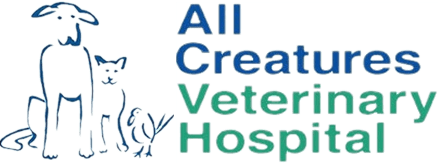There is a lot of discussion around pet nutrition these days! Everyone wants the best for their best friends, and diet is very important.
Dog Food: The Basics
Dogs are omnivores which originated from wolves many thousands of years ago. Studies are starting to show that dogs have evolved to maintain a very different diet than wolves. A new study revealed that there are roughly 120 genes differing between wolves and domestic dogs; many of which are found in the digestive tract. Dogs have up to 30 copies of a gene used to digest amylase, a type of starch; while wolves only have two! Further, dogs produce a longer version of a protein called maltase, which also helps to digest starch. These changes in genetics are likely due to a co-evolution with humans and sharing their food over time.
Dilated Cardiomyopathy (DCM)
Dilated cardiomyopathy (DCM) is a disease that was first researched in dogs and cats in the 1980s. At this time, the DCM cases appeared to be related to a taurine deficiency or genetics. Taurine is a protein found in meats and some grains; the body uses it to build and maintain muscle. The genetic problem appears to be common in Golden Retrievers, Newfoundlands, English Setters, and Doberman Pincers. When an animal has DCM, the heart becomes large and the muscles stretch thin to compensate. They are not strong enough to pump blood throughout the body when they have this disease. At home, your pet may be tired more than usual, have fainting or wobbly spells, or have no signs at all. If you notice any of these signs, please contact your veterinarian right away!
How does diet relate to the heart, though?
In 2018, Tuft’s University released an article explaining the risks of grain-free and boutique diets and an association with heart disease. Dogs without the apparent genetic predisposition began to present with this disease in the early 2000’s to cardiologists. When their blood was tested for a taurine deficiency, many of them tested normal; although some of them appeared deficient. Many of these dogs were on exotic or grain free diets. With a diet change and supplemental taurine, most improved! These diets often have taurine in sufficient levels in their ingredients, but for some reason, our dogs are not able to absorb the taurine appropriately or use it. Researchers at this point are not sure if there may be a toxic ingredient playing a roll or not. Much of the research is still ongoing.
But my dog has allergies!
Many dogs do have allergies to food! Signs of food allergies include ear infections, red or itchy skin, or skin infections that come back frequently. If you see these signs at home, please talk to your veterinarian! Dogs are most commonly allergic to a protein (chicken, beef, fish) rather than a grain. We have hypoallergenic prescription foods that we can recommend (as long as otherwise your best friend is healthy!) where the proteins are broken down into very small pieces the immune system cannot recognize.
What do I do next?
If you have been feeding your dog a grain free or boutique food with exotic proteins, contact your veterinarian. A diet change before DCM takes hold is often all that is needed to prevent it. Many commercial diets have complete nutrition; just look for a statement on the back of the bag that says “[Diet X] is formulated to meet the nutritional levels established by the AAFCO [Dog /Cat] Food Nutrient Profiles for [gestation/lactation / growth / maintenance / All Life Stages]” OR “Animal feeding tests using AAFCO procedures substantiate that [Diet X] provides complete and balanced nutrition for [gestation/lactation / growth / maintenance / All Life Stages]“. Your veterinarian will listen to your pet’s heart to try to hear for any abnormalities. We would love to work with you to discuss your pet’s specific nutritional needs!
Sources for More Reading
- https://www.sciencemag.org/news/2013/01/diet-shaped-dog-domestication
- https://avmajournals.avma.org/doi/full/10.2460/javma.253.11.1390
- https://vetnutrition.tufts.edu/2017/01/food-allergies/
- https://veterinarypartner.vin.com/default.aspx?pid=19239&id=8808771
- https://vetnutrition.tufts.edu/2018/06/a-broken-heart-risk-of-heart-disease-in-boutique-or-grain-free-diets-and-exotic-ingredients/








